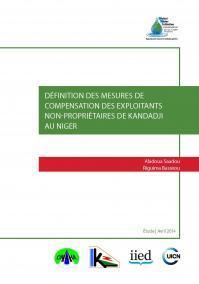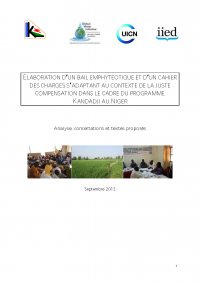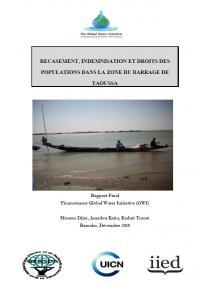Définition des mesures de compensation des exploitants non-propriétaires de Kandadji au Niger
La construction du barrage de Kandadji au Niger aura, entre autres, pour conséquences l’appropriation de terres de culture, propriété de détenteurs coutumiers mais dans beaucoup de cas sous-exploitations d’autres personnes non-propriétaires. L’État a proposé un bail emphytéotique d’une durée de 50 ans pour les propriétaires, en compensation de leurs droits de propriété expropriés.








